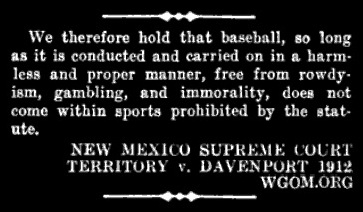More road bling mystery:
Category Archives: The Nation Has Problems
Road Bling #1 – What Am I?
From biking in the area, and the Running-All-Hartford-Streets project I began on Jan 29th, I've collected numerous items I call "road bling" - shiny metal objects that I use to make race-medals for various events with friends. Several of these are of unknown function. This series is to let you engage in investigative forensics on these road/street enigmas.
The Nation Has Problems: Vol. 11
Hi Everybody!
After being gone for a while, I'm back here with a quick edition of The Nation Has Problems for pledge week. I didn't have a lot of time to put things together, but I came up with something that should be pretty fun! Probability questions are always good for people that are interested in sports, so I've got three questions of varying difficulties to attempt!
Easy
Suppose you roll three dice. What is the probability that you roll at least one 5 or 6?
Medium
Two players play a game involving flipping coins. Each player has a particular sequence of Heads and Tails that they'd like to see. Once one of the two sequences occur, then that player wins and the game is over. For instance, suppose Player 1 has HHH and Player 2 has TTT, then the following sequence:
HHTHTTHHTTHTHTTHHH
In this case, Player 1 is the winner.
Here are three different pairs of sequences for the players. In each case, what is each player's chance of winning?
a) Player 1: HHH, Player 2: TTT
b) Player 1: HHH, Player 2: TT
c) Player 1: HTT, Player 2: TTH
Hard
A banquet is thrown for 100 current and ex-Twins players. Each player is assigned his own seat. Unfortunately, A.J. Pierzynski is the first player to enter and he completely ignores the assigned seating and just sits in the seat closest to him. Each other player that comes in after him then sits in his own seat if it is available and otherwise picks a seat at random. Joe Mauer is the last player to enter. What is the probability that Joe sits in his assigned seat?
Good luck and have fun! --GH
The Nation Has Problems: Vol. 10
About Last Month
1. Find the last three digits of \(2011^{2012}\).
The first thing you might notice about this problem which can make it significantly easier is that \(2011\equiv 11 \pmod {1000}\) so we can consider the simpler problem of finding the last three digits of \(11^{2012}\). From here, I used the binomial theorem to write
$$11^{2012} = (10+1)^{2012} = \sum_{i=0}^{2012} \binom{2012}{i} 10^{i}1^{2012-i} $$
Notice that in the sum, anything with a \(10^3\) or higher will end in all zeros, so the last three digits are the last three digits of
$$\binom{2012}{2}10^2 + \binom{2012}{1}10 + \binom{2012}{0} = 202,306,600 + 20,120 +1$$
from which we can see the last 3 digits are 721.
2. Evaluate \(\sqrt{1 + \sqrt{ 1 + \sqrt{ 1 + \cdots } } } \)
Let \(x=\sqrt{1 + \sqrt{ 1 + \sqrt{ 1 + \cdots } } } \). Then we see that \(x=\sqrt{1+x}\) from which we get
$$x=\frac{1\pm\sqrt5}{2}$$
since \((1-\sqrt 5)/2\) is negative, the answer must be \((1+\sqrt 5)/2\) which is the golden ratio. Interestingly, the golden ratio is also equal to the continued fraction
$$1 + \cfrac{1}{1 + \cfrac{1}{1 + \cfrac{1}{1 + \ddots}}}$$
and the solution can be obtained in a very similar manner (in this case, \(x=1+\frac 1x\)).
The Problem
I'm low on inspiration this month, so I'm stealing another one for the Citadel's problem of the week. I think there are probably a lot of ways to approach this one, so I'm curious to see what people can come up with!
1. Lagrange proved that any positive integer can be written as the sum of four squares. For instance, \(19=3^2+3^2+1^2+0^2\) and \(97=6^2+6^2+5^2+0^2\). Express 2012 as the sum of four squares in two different ways--first, as the sum of squares where one number appears twice and second where all 4 numbers are different.
2. http://spikedmath.com/puzzle-006.html (I haven't worked this one out yet, so I don't know the answer!)
The Nation Has Problems: Vol. 9
About Last Month
Beyond the fold--solutions to the hat problems from last week and a problem I once got duringg a job interview!
The Nation Has Problems: Vol. 8
About Last Month
Beyond the fold--solutions to the hat problems from last week and a problem I once got duringg a job interview!
The Nation Has Problems: Vol. 7
About Last Month
Once I thought about the first problem for a while, it brought me to remember another problem that I had come across recently, so I added it.
The Nation Has Problems: Vol. 6
About Last Month
So a few of you figured out the first problem last week, but it seemed that most of you got stuck on the second. Solutions after the break.
The Nation Has Problems: Vol. 5
About Last Month
Both of these problems can be boiled down to well known combinatorial identities. However, if you're not familiar with them, they can still be tricky problems. Before reading the solutions, you should make sure you are familiar with binomial coefficients. I will use the notation C(n,k) here. This is also the same number of ways to pick k distinct objects from n things and hence is often said as "n choose k".
The Nation Has Problems, Vol. 4
About Last Month
So as I mentioned last time, both of these have relatively simple solution. For the first problem, calculating probabilities is a pretty futile exercise. You can try it for a small value of n and do it, but if n is--say--1,000,000, things will get out of hand in a hurry. The trick to this problem is just to note that if you throw 2n+1 coins, you will either throw n+1 heads or n+1 tails, but not both. Since the probability of each of these events is the same by symmetry, the probability that either player wins must be exactly 1/2.




